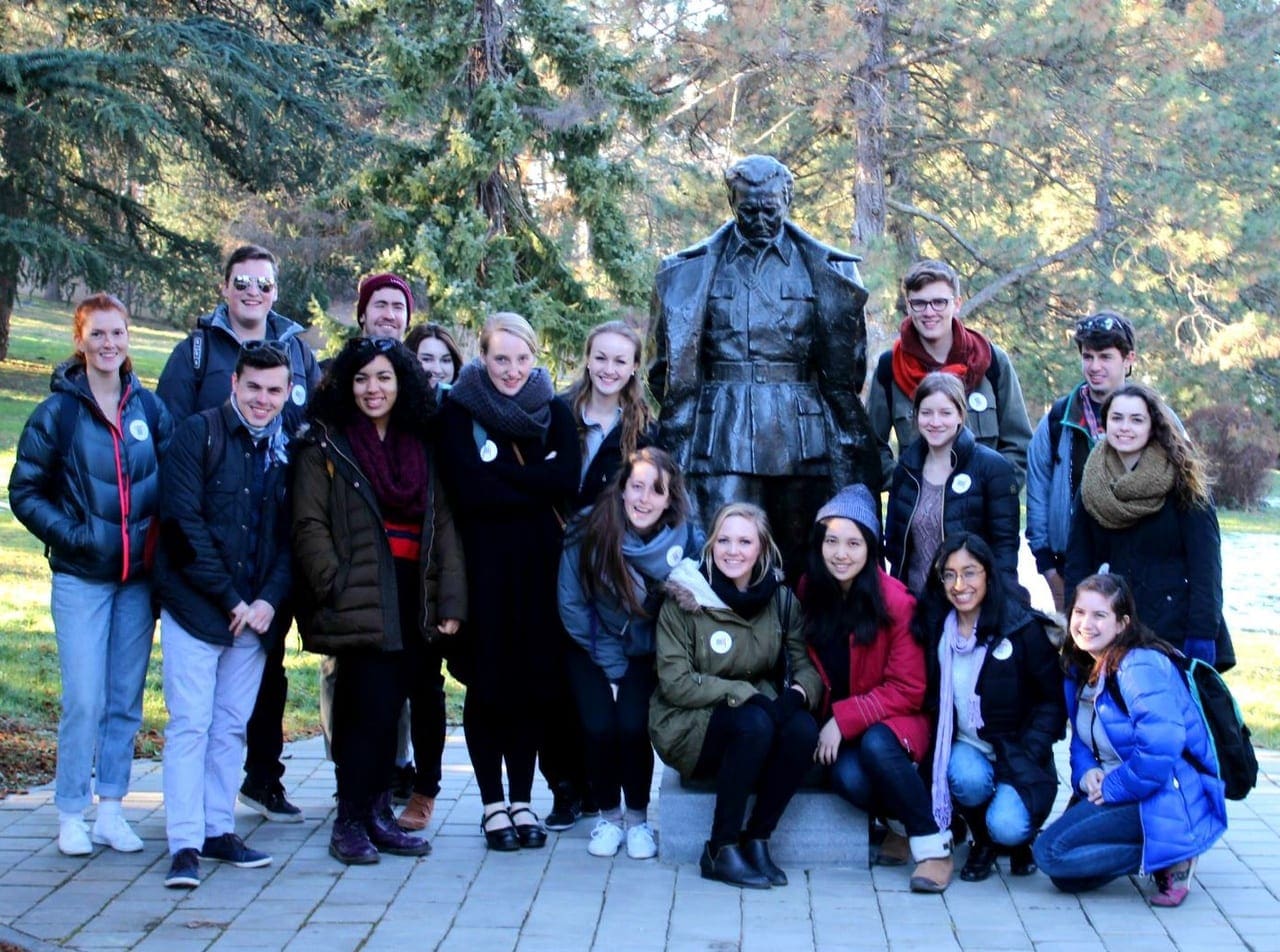

Faith Beyond Culture
A natural storyteller, Annie can share all kinds of stories about her time overseas, but one of the elements of her experience she says was the most formative was navigating the fusion of faith and identity in cultures far removed from her upbringing in rural Nebraska.
“When I was preparing to go to the Balkans, I had this impression that the confluence of cultures and religion there would be this romantically mashed-up post-conflict mess of his torical baggage and ethnic strife, and that this would be the bread and water of everyone’s daily interactions. Whether or not—or to what degree—that is reflective of the situation, I don’t think I’m qualified to say, but in my time spent in my homestay, with new friends, in class, at work, on the street or bus or wherever…it became very clear to me that that was not my place, because however “different” some culture might be, it is very hard to point fingers at certain things without finding conviction in the ironic, not dissimilar pathologies of culture and society faced in my home community and nation.
torical baggage and ethnic strife, and that this would be the bread and water of everyone’s daily interactions. Whether or not—or to what degree—that is reflective of the situation, I don’t think I’m qualified to say, but in my time spent in my homestay, with new friends, in class, at work, on the street or bus or wherever…it became very clear to me that that was not my place, because however “different” some culture might be, it is very hard to point fingers at certain things without finding conviction in the ironic, not dissimilar pathologies of culture and society faced in my home community and nation.
“This is where the practice of genuine faith in such a context is not only relevant, it is colossally effective. When we talk about peace and developing mechanisms to foster societal systems that will help sustain it, we’re often using methodologies and language that, whether explicitly named or not, include reconciliation and forgiveness and restoration, for example. In academia, in politics, in religious communities, in civil society, etcetera, peace tries to be an organized process, both from the top-down and the bottom-up.
“Previously, occupation and conquest of the Balkan lands and peoples by various empires and, etcetera, etcetera, created a melting pot of influences wherein religion became very closely associated with ethnic identity. The main legacy of this history is that religion has taken on a lot of angst…so we are talking centuries of pretty intense identity politics here.
“I’ll make no bones about it, the Balkans is a ‘post-conflict’ region, but by studying and living and working there even for so brief a time I’ve found we have a lot of commonalities. It is too easy to see it only as what is most emphasized to be, but while learning about some of the hate and prejudice experienced in the Balkans, it hits home how far we can all stray from our common humanity, or our brotherhood in Christ. It’s all about how we value human life despite our circumstances. In fear we often create divisions and emphasize differences, or in pride we cannot bear to take a knee, or in greed our needs must come first, and so on and so forth. That’s how things like forgiveness and reconciliation, humility and the restoration of relationships and some material loss are so important; in every place and every walk of life, we must set aside those vices that wreck us. In hearts and in actions, such things you can learn to see. And in my experience, learning to see was cross-cultural.
That’s how things like forgiveness and reconciliation, humility and the restoration of relationships and some material loss are so important; in every place and every walk of life, we must set aside those vices that wreck us. In hearts and in actions, such things you can learn to see. And in my experience, learning to see was cross-cultural.